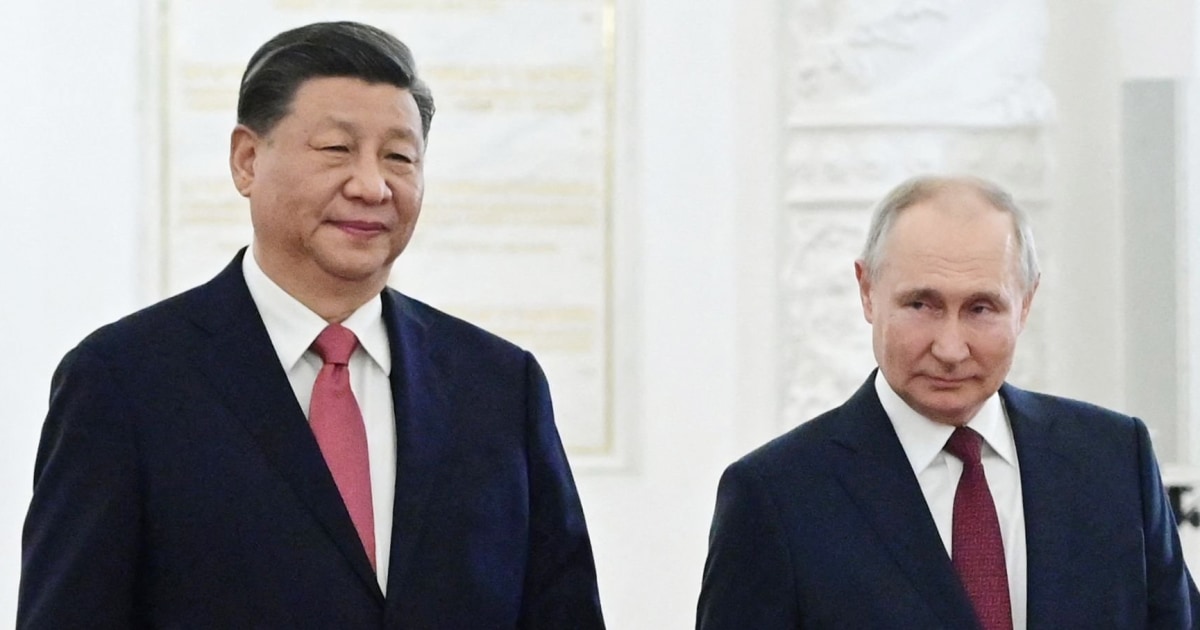Xi flew to Russia after China scored a surprise diplomatic success in the Middle East, a region once dominated by the United States, by brokering a deal between Saudi Arabia and Iran to restore diplomatic ties for the first time in seven years.
China’s economy is facing a severe slowdown after the end of the government’s strict «covid zero» policies, and Xi, who has just won an unprecedented third term as president, is eager to prove his status as a world leader, according to Victor Cha, who oversaw Asia policy on the White House National Security Council from 2004 to 2007 and is now a member of the Defense Policy Board, which advises the secretary of defense.
“He has a lot of problems at home and he is looking for ways to justify his third term by saying that China is playing this great global role now, and it provides a counter-narrative to what he sees as the Western narrative about the liberal democratic order,” he said. Cha, now a professor at Georgetown University.
With US and European Union sanctions cutting off Russia from Western energy markets and access to advanced US and European technology, Beijing has offered Moscow an economic lifeline by buying its oil and gas, and sell semiconductors and other «dual-use» items needed to keep the Kremlin’s war machine running.
China spent $81.3 billion on imports of Russian oil, coal and natural gas last year, up from $52.1 billion in 2021, according to customs data analyzed by the Center for Global Energy Policy at Columbia University. Since it can no longer sell its oil and gas to Europe, Russia has exported its surplus energy at a deep discount to China, as well as other countries, saving them billions of dollars.
In a commentary published in Russia’s Rossiyskaya Gazeta newspaper on the eve of his trip, Xi touted increased trade between China and Russia and said his trip to Moscow would be «a trip of friendship, cooperation and peace.»
In a veiled jab at the US, Xi added: «No model of government is universal, and no country should dictate the international order.»
Although China and Russia have held joint military exercises and recently held naval exercises with Iran in the Gulf of Oman, Beijing has so far stopped short of directly arming Russian forces waging war in Ukraine, according to US intelligence officials.
The US and European governments have warned China that it will face dire consequences if it decides to start supplying Russian forces with weapons and ammunition.
Arming Russia would risk a wave of US and European sanctions and derail Xi’s economic goals, experts said.
«He’s not going to let Putin fail, but there’s a limit to how much he’s going to risk for Putin to succeed,» Cha said.
Although China may not be ready to wade into the conflict and provide direct military support to Russia, the current state of affairs offers some benefits to Beijing, some experts have said.
As long as Russia avoids defeat, China can rely on the flow of cheap oil and gas from Russia, while the US and its allies are forced to devote attention and spend billions of dollars to keep Russia’s military equipped. Ukraine. At some point, the transatlantic unity may start to fracture as the war progresses, and China could try to play a role in diplomatic talks by taking advantage of divisions within NATO, experts said.
The danger is that China, by siding with Russia and helping to keep its economy afloat, could help prolong the war, Cha said.
“That is not good for the United States and the West because it means that the war will just continue, and that is not a positive outcome for anyone,” he said.
Owen Hayes, abigail williams and Eric Baculinao contributed.


